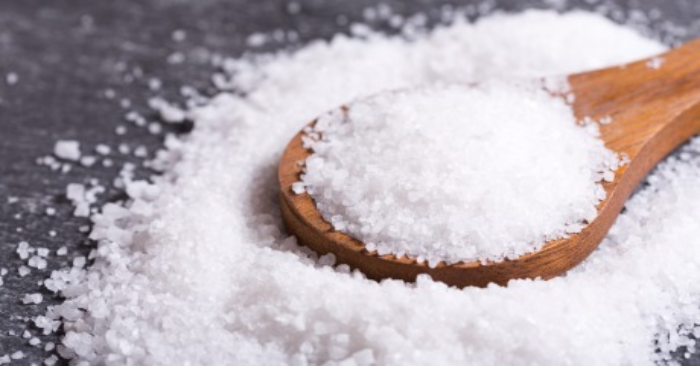Excess Salt Intake May Affect Your Skin Health: Study; 5 Tips to Reduce Salt Intake

Salt is a staple in the culinary world, known for its ability to enhance flavors. However, it also comes with its fair share of health concerns, including risks of hypertension and heart disease. Recent research adds another layer to the conversation, suggesting that excessive salt intake can negatively impact skin health. Findings published in the journal JAMA Dermatology highlight the potential skin-related issues linked to high sodium consumption.
Side Effects of Salt on Skin: Understanding the Link
A study conducted by the University of California – San Francisco revealed that sodium, primarily consumed as salt, is stored in the skin and may contribute to skin inflammation. This discovery suggests that reducing dietary sodium could be beneficial for managing eczema.
Dr. Katrina Abuabara, an associate professor of dermatology at UCSF and corresponding author of the study, noted that “eczema flares can be difficult for patients to cope with, especially when they are unable to anticipate them and don’t have recommendations on what they can do to avoid them.”
The study, which analyzed data from over 215,000 individuals, found a significant correlation between sodium intake and eczema. Each additional gram of sodium excreted in urine over a 24-hour period was associated with an 11% increase in the odds of an eczema diagnosis. Furthermore, an additional gram of sodium intake daily was linked to a 22% higher chance of having an active case of eczema.
Tips to Reduce Salt Consumption in Daily Life
Avoid Processed Food: Processed foods often contain high levels of salt to enhance flavor and shelf life. Opt for healthier alternatives like fruits, nuts, and seeds instead of ready-to-eat meals.
Don’t Sprinkle Salt on Food: Adding salt after cooking is discouraged because its iron structure changes during cooking, making it easier for the body to digest. Reduce salt usage by seasoning food during the cooking process instead.
Moderate Pickle and Chutney Intake: While pickles and chutneys can enhance the taste of food, they often contain high levels of sodium and trans-fat. Consume them in moderation to avoid excessive salt intake.
Use Seasonings and Herbs: Herbs and spices are excellent alternatives to salt for flavoring food. They help prevent high blood pressure and have anti-inflammatory properties that boost immunity.
Consume Fruits and Vegetables with Less Sodium: Some fruits and vegetables, such as beets, spinach, and carrots, have high sodium content. Consume these in moderation and opt for low-sodium options whenever possible.
By adopting these practices, you can effectively reduce your salt intake and potentially improve your skin health, alongside other health benefits.






